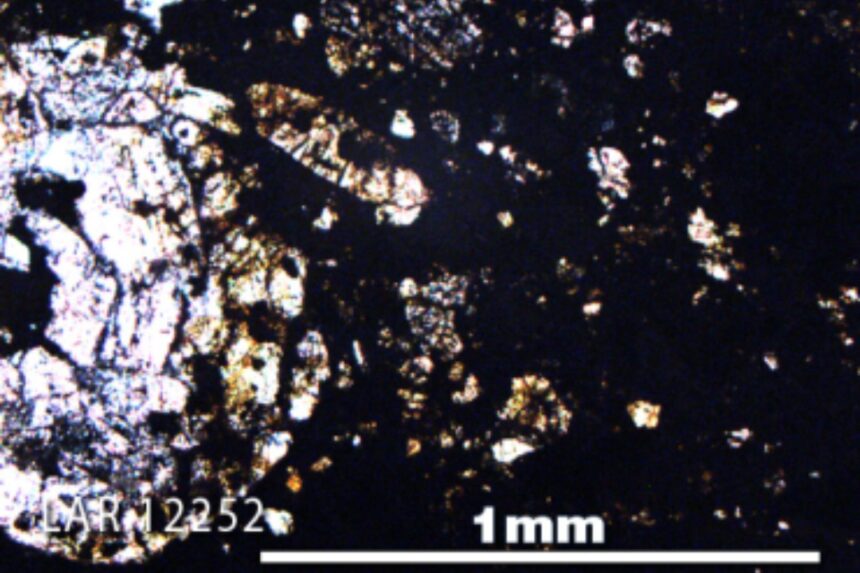Water is essential to life as we know it, but scientists are still unsure about how it originated on Earth. One theory is that asteroids express-shipped us hydrogen, essential to the formation of water molecules, by colliding with our planet in its early history. New research, however, suggests Earth already had enough hydrogen of its own, thank you very much.
Researchers in the UK discovered previously unknown quantities of hydrogen in a type of meteorite called an enstatite chondrite. I know what you’re thinking: What does hydrogen on a meteorite have to do with the origin of water on Earth? The composition of enstatite chondrite meteorites closely resembles that of Earth 4.55 billion years ago. So if the meteorite has its own source of hydrogen, then early Earth likely did, too—meaning it could have produced water without the help of foreign emissaries.
“A fundamental question for planetary scientists is how Earth came to look like it does today. We now think that the material that built our planet–which we can study using these rare meteorites–was far richer in hydrogen than we thought previously,” James Bryson of the University of Oxford’s Department of Earth Sciences said in a university statement. “This finding supports the idea that the formation of water on Earth was a natural process, rather than a fluke of hydrated asteroids bombarding our planet after it formed.”
Bryson, a co-author on the study published earlier this month in Icarus, and his colleagues investigated an enstatite chondrite meteorite from Alaska known as LAR 12252. While a previous study of the same meteorite had already found traces of hydrogen, those traces may have resulted from Earthly contamination, according to the statement.
The scientists behind the new study speculated that LAR 12252 might host large quantities of “native” hydrogen bonded to sulfur. As a result, they used an intense beam of X-rays to search the meteorite for sulfur compounds. While studying the matter, called the matrix, surrounding one of the chondrules (tiny spherical components), the team hit the jackpot: hydrogen sulfide. They discovered that the entire matrix had large amounts of the compound, amounting to five times as much hydrogen as that found in the non-crystalline parts of the meteorite’s chondrules, where the previous study had already detected traces of hydrogen.
Significantly, parts of the meteorite that had obviously experienced terrestrial contamination, like rust, had little or no hydrogen. This implies that the hydrogen sulfide in the matrix is most likely intrinsic. Since the meteorite’s composition is analogous to that of Earth 4.55 billion years ago, this indicates that by the time Earth was being struck by asteroids, it would have had enough of its own hydrogen to eventually produce the amount of water our planet hosts today, according to the researchers.
“We were incredibly excited when the analysis told us the sample contained hydrogen sulfide—just not where we expected,” said Tom Barrett, lead author of the study and a scientist from the University of Oxford’s Department of Earth Sciences. “Because the likelihood of this hydrogen sulfide originating from terrestrial contamination is very low, this research provides vital evidence to support the theory that water on Earth is native—that it is a natural outcome of what our planet is made of.”
Water is essential to all known living creatures. As such, by providing new insight on how Earth got its water, the study also sheds light on the enduring mystery of the origin of life on our planet.
Read the full article here












